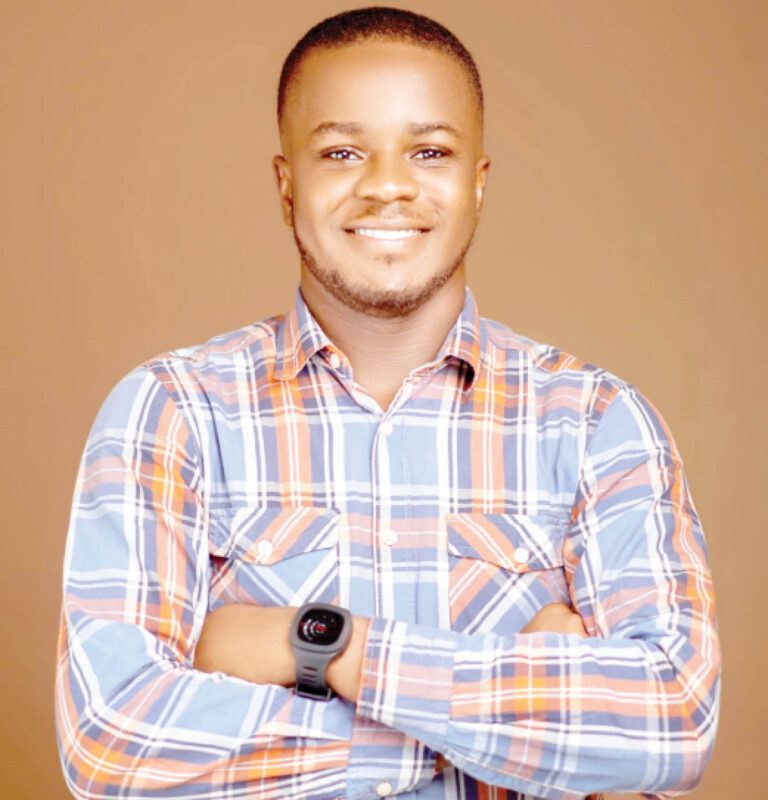
Stanley Aigbogu is an award-winning creative technologist and storyteller who was among the 15 artists and technologists that took part in the Upcycling Redefined Workshop organised by the International Institute for Creative Development (IICD) and sponsored by the US government in 2021. He holds a degree in multimedia development and hails from Anambra State. The founder of ArtecHubs Nigeria, a leading STEAM tech skill acquisition company for young people, speaks on why technology is relevant to art.
What attracted you to art considering your background?
Ever since I was a kid, I have always been on the creative side of technology. I always try to use things that are around me like recycling waste plastic and electronics. I am a creative person as I try to see what I can create with things around me. My dad is also a film-maker and I learnt a lot about how to write stories. That creative aspect of me has always been driving my passion for technology and art. As for my passion for art, I discovered that I could actually do things with art at the age of 18 but even before then, art has always been part of my process but I did not identify it.
How important is technology to art?
Art and technology need each other. Digital art is done on software and for that software to happen, you need software engineers. In hardware technology, you have to design products, which is an art. It is an art because it requires an understanding of shapes, angles, and colours. Art and technology are so inclined and important that we are taught in school that they should be different but the actual reality is that they work together. Art inspires technology and technology enables art because making paints comes from an industrial-technological process. These paints can also be used in street arts and so many other things. It is a mutually symbiotic relationship.
Do you think visual artists should be concerned with the rate technology is changing art?
Nigerian visual artists are really lagging behind because the world is advancing on how art is being represented. There is a strong link between art and technology, unlike in the olden days. It is quite different now. You can see things like NFTs that you try in the blockchain platform of digital art. There is now virtual reality art and augmented reality art. Art is changing, people are changing the concepts that defined art and I think the Nigerian visual artists should adapt because if you are still stuck in the past, the world will move ahead without you. Nigerian visual artists should try and be technology inclined as well. The educational system should stop teaching us that art and science or art and technology are different. There are not many differences, you need the two of them to progress. It is more important that schools and visual artists should start learning more about using digital tools and linking themselves with technological inventions for art.
You are doing several things as a CEO, scholar, technologist etc, what brings you the greatest fulfilment?
It is seeing the smiles on the lives of people I impact. It is more about the journey, and adventure that brings me the most fulfilment ever. I get to meet more people and provide people with access to solutions, and the children I also teach about science and technology and art exude these smiles and joy that give fulfilment that you can’t find by reading of the book and watching a motivational video. It inspires me to keep doing what I am doing and impacting lives.
You are among 15 artists and technologists that worked on a masterpiece, The Face, recently unveiled at Transcorp Hilton Abuja. How did the Upcycling Redefined Workshop that was held last year help your career?
The upcycling workshop really changed the way I understand art and also the masterpiece that we worked on was an amazing way to collectively bring artists and a few technologists as well to work on a product that embodies upcycling. The workshop changed me mentally about how products can be designed and that waste is gold. Waste is the new gold and that workshop really helped me appreciate that any material has a value, it depends on the level of creativity applied. The workshop gave me another perspective on the value of waste.
Tell us about your latest project
The latest project my company is working on is recycling waste batteries and upcycling metallic waste to build solar home systems that people can use to power their homes and provide themselves with affordable energy. My company is developing new tech solutions that will provide people in rural communities and some people in urban communities access to clean and affordable energy from recycling waste electrical and electronic materials.